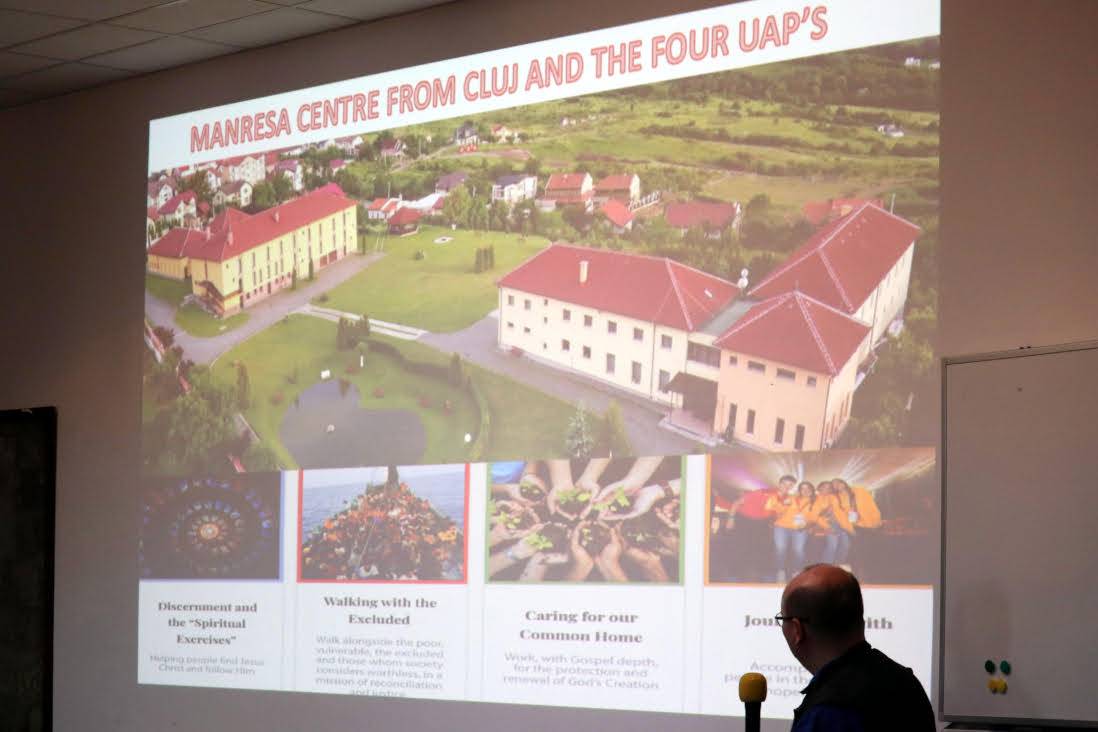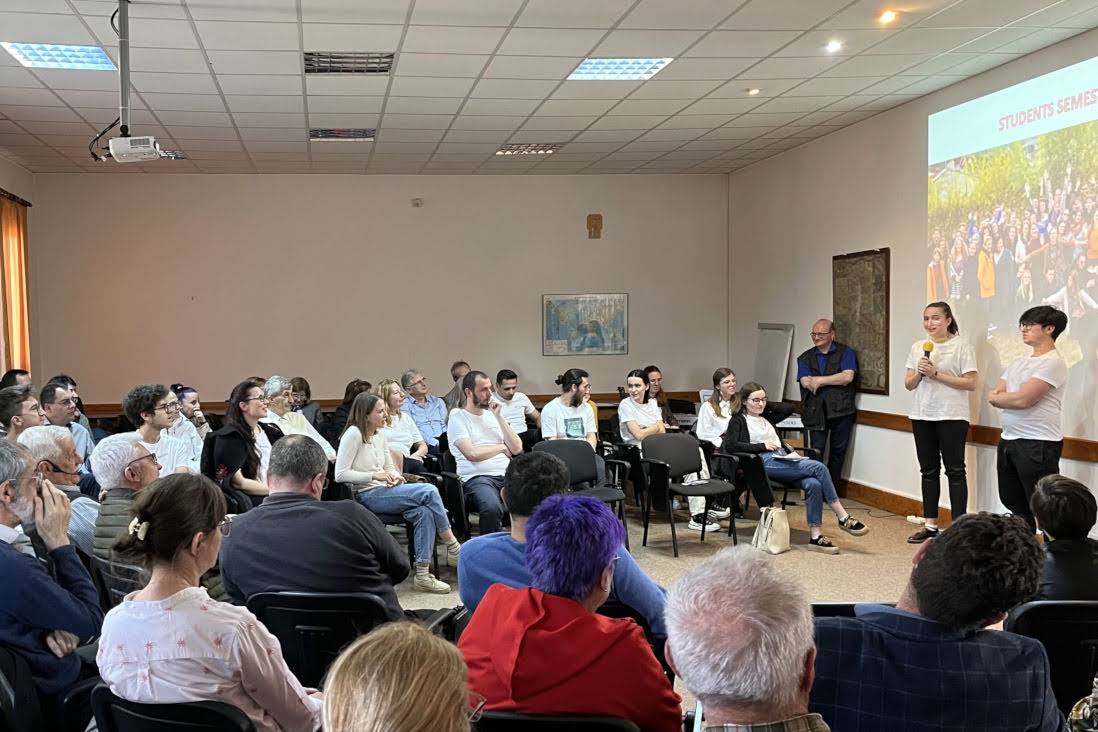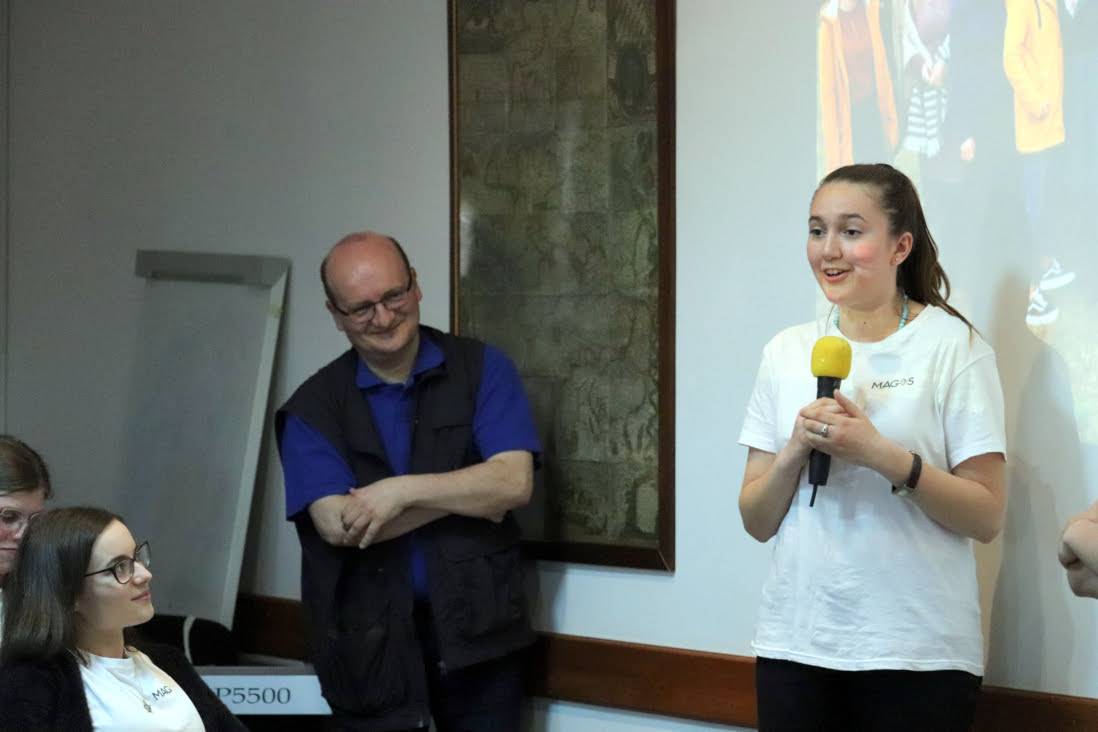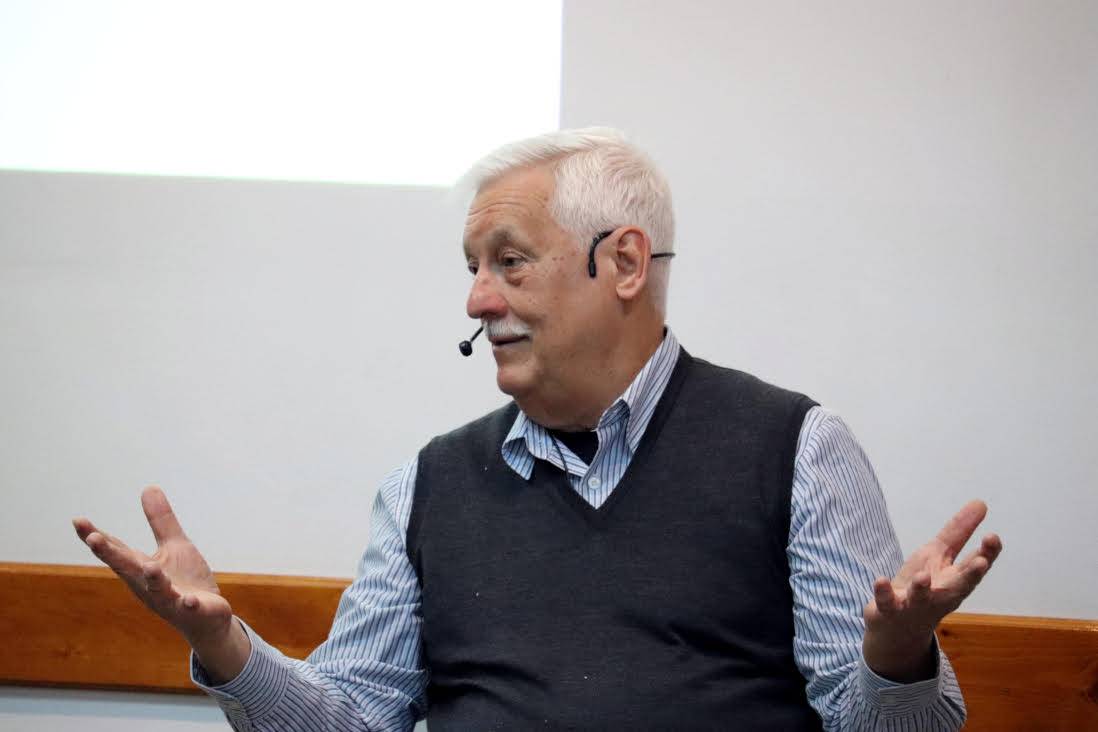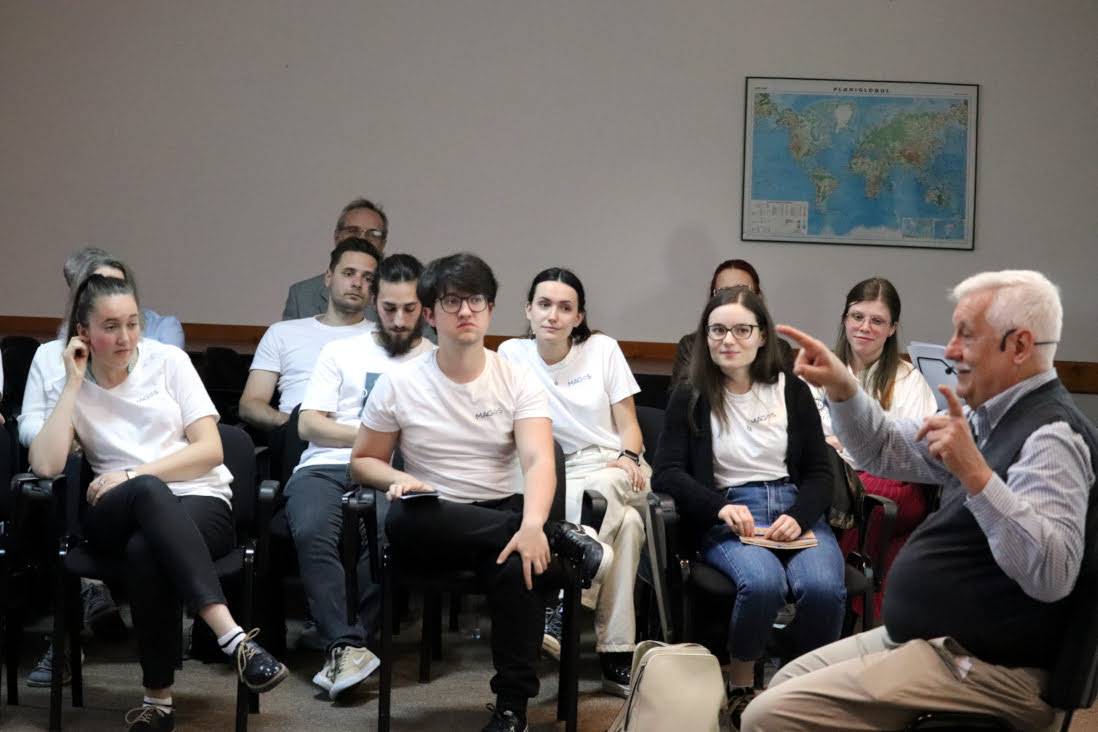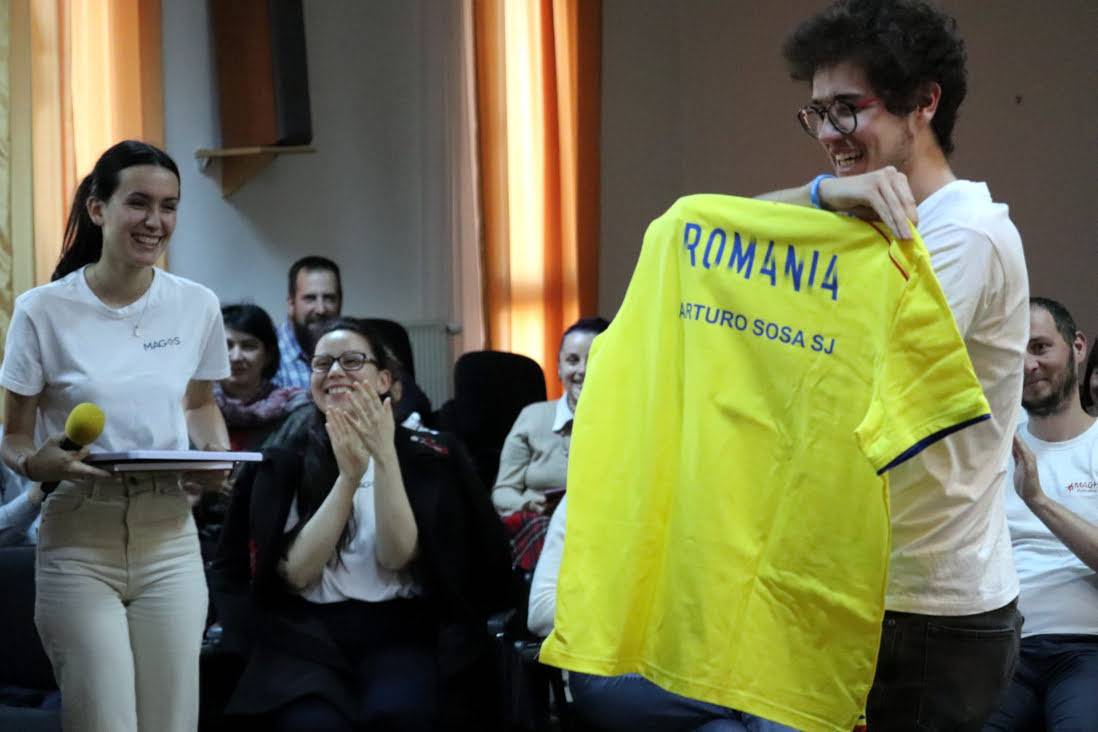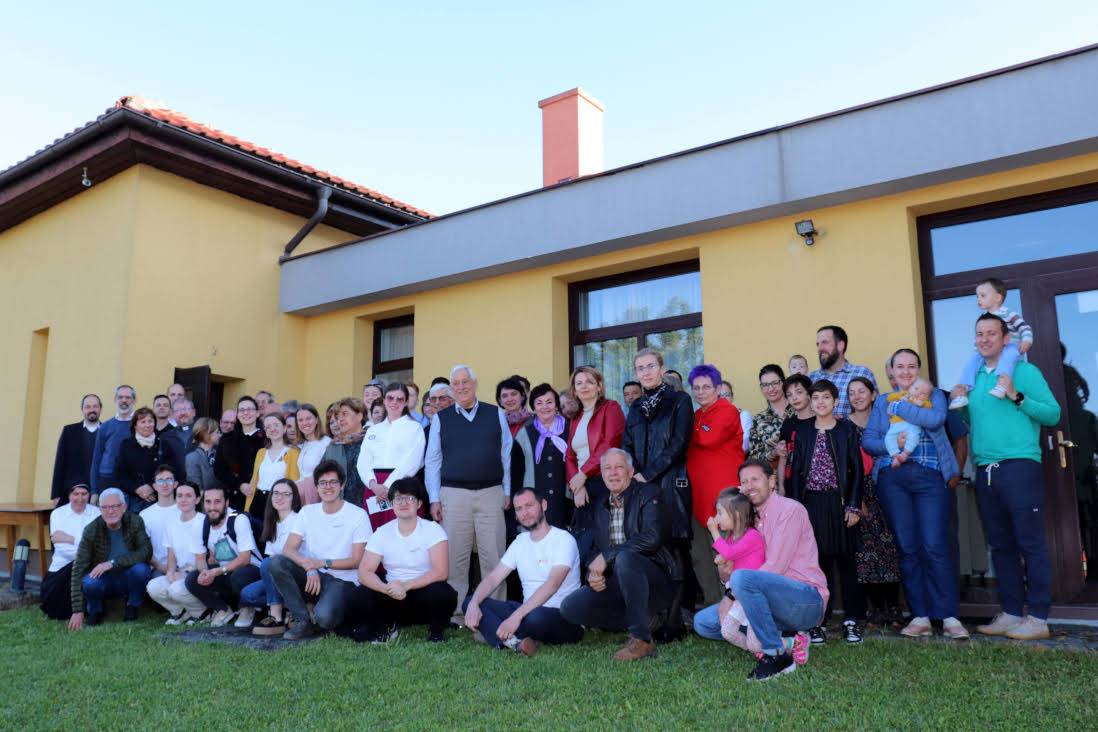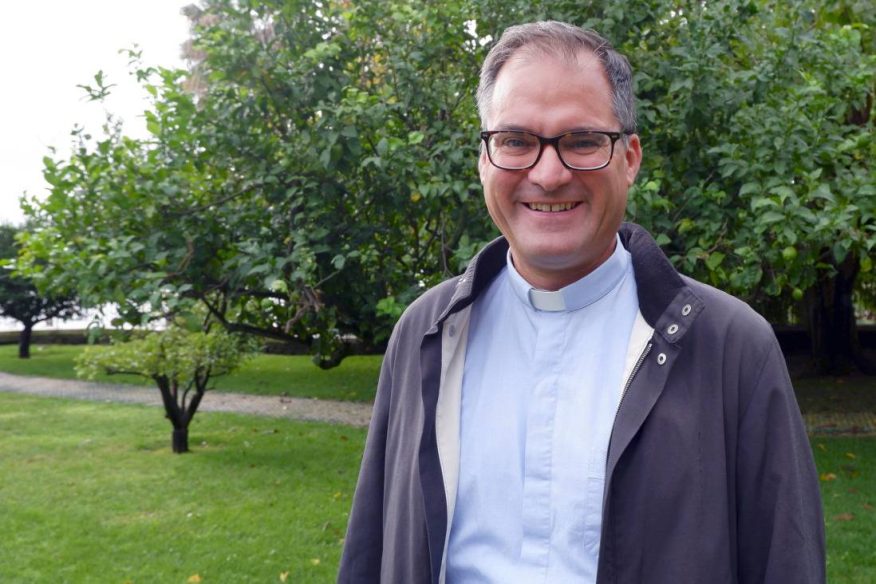Romania: Manresa Spirituality Centre
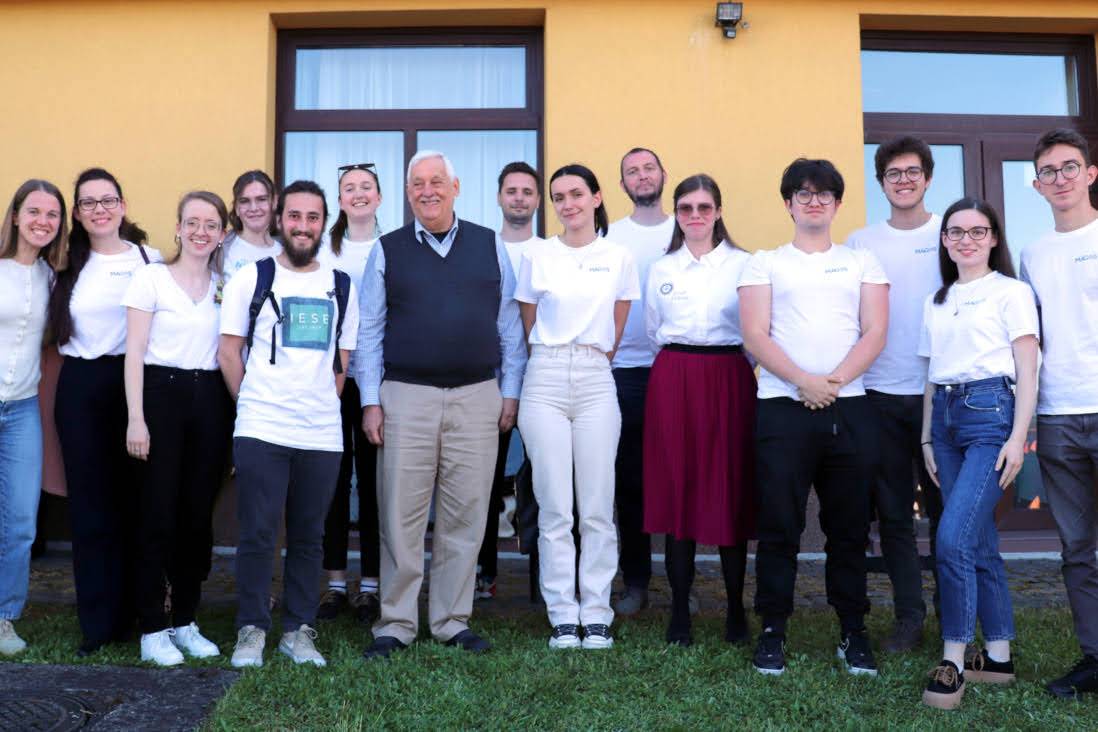
Father General met with 60 people from the various Ignatian spirituality groups of different ages and experiences last night at the Manresa Center. The meeting began with a time of praye, followed by a presentation of the various activities held at the center. Finally a question and answer exchange.
From the fall of the Wall to the opening of the Novitiate and the beginning of the Greek Catholic Theological Faculty. The birth of the Centre for Spirituality, was intended “to give orientation to a people, to form the clergy and laity, to promote retreats”.
Manresa Spirituality Centre and the Community House with the Novitiate were inaugurated in the summer of 2002 in the presence of Father General Kolvenbach and with the blessing of Latin Bishop IPS Gyorgy Jakubinyi and Byzantine Bishop PS Florentin Crihalmeanu under whose jurisdiction the Romanian Jesuits work. This place, which was providentially identified has long been desired and sought after. Its history is recounted by Fr. Olivo Bosa.
The first steps
“In 1989, with the fall of communism and the borders that divided the world into two blocs, the floodgates opened in Romania and religious freedom was restored.
At that time there were still two priests, four brothers and one novice left in the Romanian Province.
During his first visit to Rome in the spring of 1990, Fr Puni, then Provincial, asked Fr General Kolvenbach to send Jesuits from Europe to prevent the Romanian Province from dying out. Thus, at the beginning of November 1990, the first two Jesuits arrived in Romania, one from Italy and the other from Malta, who were accommodated in a Jesuit apartment that had become vacant in Cluj. Fr Kolvenbach himself came to Romania just two weeks after our arrival, in order to become acquainted with the situation personally and to plan the initial steps”.
The choice of Cluj has historical reasons: “It is the place where the Society of Jesus took its first steps in 1579,” he explains, “and where it has left its greatest mark. Cluj is one of the most important university centres in Romania, the capital of Transylvania, a crossroads of cultures, religions and nations, and experiences the tension of being a bridge between the Eastern and Western worlds, especially in the religious sphere. The first two Jesuits to arrive had to learn the language by attending courses at the university in order to establish contact with the academic world with whom they were going to work”.
The Novitiate
In September 1991, thanks to the permanent presence of three Jesuits – Fr Robert Soler from Malta, Fr Oliva Bosa from Italy and Fr Vasile Herciu from Romania – it was possible to open a novitiate in a poor district of Cluj, which over time developed into three flats to accommodate up to 9 novices in two years.
“The year after the fall of the Wall, the Greek Catholic Church, anxious to form not only good priests but also good laymen – especially in those areas where it would work to spread the Christian faith and have a greater impact on social life – founded the Faculty of Theology within the State University, with various disciplines to form social workers, professors of religion, sacred art and languages, in addition to theology. The number of students was large and there was a shortage of professors, so they asked for our collaboration, which we gladly accepted.
The Greek-Catholic Faculty of Theology
“The year after the fall of the Wall, the Greek Catholic Church, anxious to form not only good priests but also good laymen – especially in those areas where it would work to spread the Christian faith and have a greater impact on social life – founded the Faculty of Theology within the State University, with various disciplines to form social workers, professors of religion, sacred art and languages, in addition to theology. The number of students was large and there was a shortage of professors, so they asked for our collaboration, which we gladly accepted.
Manresa Spirituality Centre
In this context we were asked to work to give these young people, who came from an atheistic and anti-religious communist culture, a spiritual formation both in culture and in the experience of faith. Very often, in addition to the lectures, we offered retreats during holidays or vacations, and in time even three days of spiritual exercises.
The students who attended the faculty came from all over Romania. The students themselves, when they returned to their countries, told their friends and parish priests about their spiritual experience, so that on many weekends we were invited to give retreats in their churches for the young people of the parish and sometimes for the faithful. This allowed us to make the Ignatian retreats, and often the Exercises, known in different parts of Romania and to come into contact with the local clergy. In the first years we also actively collaborated in organising formation courses for consecrated persons who later asked for the experience of the Ignatian Spiritual Exercises.
The summer was a propitious occasion to offer several courses of discernment: from 5 to 8 days and vocational Exercises, through which many people made the decision to give themselves to the Lord in the diocesan, Greek and Roman Catholic priesthood, as well as in the consecrated life and even in the Society of Jesus. These were activities carried out in a very improvised context, in a spirit of poverty and with not a few hardships but blessed by the Lord.
Consecrated persons began to incessantly ask us for 8-day retreats, which we repeatedly offered in homes or improvised places.
Meanwhile, our community and the number of novices also began to grow until we had five apartments in the same, peripheral and poor area of Cluj: three for the novitiate, one for the provincialate and one for retreats.
In view of the current situation, the arrival of other Jesuits from abroad and the multiplication of requests, it became necessary to have a place where the mission could be carried out more serenely. Hence a request was made to Father General to build a house suitable for the purpose, with the novitiate and community house nearby. After having received the approval, accompanied by prayer, we went in search of a suitable place, until providentially we found what we were looking for.
The team of the Centre
Born with an international character, the members of the Centre’s team belonged to different nationalities (Romanian, Hungarian, Polish, Italian), languages (Romanian and Hungarian), and rites (Latin and Byzantine), according to the good old tradition of the Society of Jesus in Romania. Today the team is made up mainly of consecrated persons, Jesuits and nuns, with the external participation of some lay people”.
Purpose of the work
“The Centre responds to the real and profound needs of people seeking to give meaning and direction to their lives. It seeks to contribute to the maturation of faith, including intellectual maturity, through conferences, biblical reflection meetings, retreats and other initiatives. It aspires to promote growth in the spiritual life and in discernment, and, through offering retreats, a personal encounter with the Lord, as well as vocational discernment.
Another focus is to help the local Church, especially the Greek Catholic Church, which was suppressed during communism, to get back on its feet, helping in the formation of clergy, seminarians and lay people, to give solidity and spiritual life to the fabric and structure of the emerging Church.
It also aspires to promote, through the Ignatian Spiritual Exercises, vocational discernment for young people, with particular attention to certain categories of lay people – doctors, social workers, professors, young families – involved in the Church and in social work.
Over time, the Centre has also opened up to the various church movements that are emerging: Catholic Action, Caritas, Charismatics, Neocatechumens, Focolarini, Maltezi, Scouts, Taizè, Equipe de Notre Dame and others, who come to our centre several times a year for a few days of formation and who ask for our collaboration. People who wish to experience a spiritual journey are also accompanied individually”. The fathers who work at the centre are often invited to give conferences or retreats in other places.
For some years now, the Manresa Centre has offered the faithful the opportunity to attend Sunday Mass, which is well attended, especially by university students and young families.
The youth activities that take place in the former novitiate also refer to the centre: Magis, Mountain Spirituality, Pietre Vive, Bible Study, Spiritual Exercises, Spiritual Exercises in daily life, CLC, and charitable activities.
The Centre has never ceased to maintain close relations with the poor and those people in the grip of various forms of addictions.

